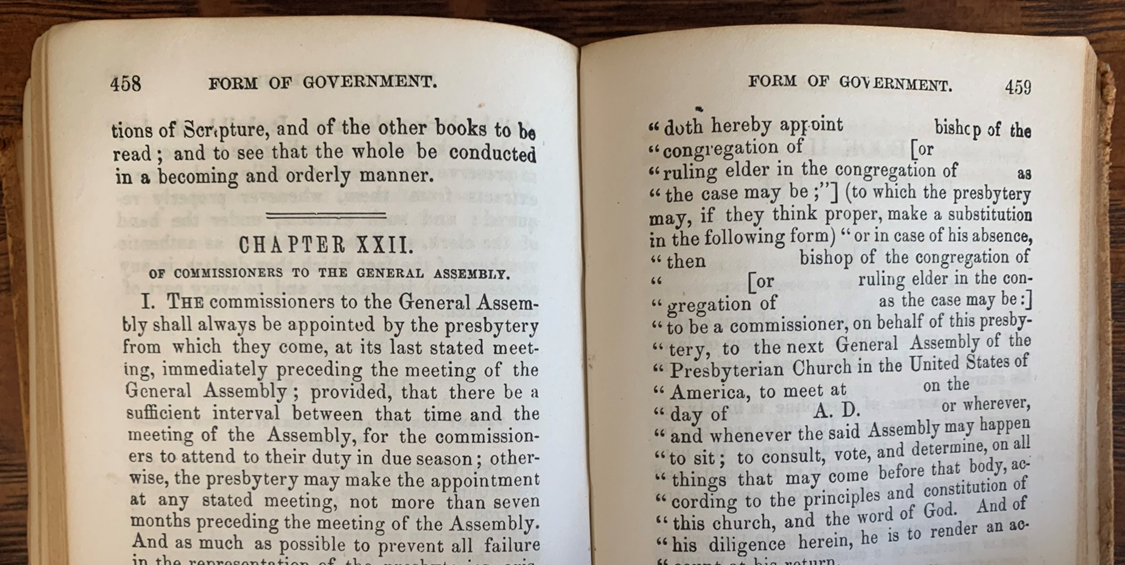It’s General Assembly season for lots of different Presbyterians. The General Assembly of the Presbyterian Church in America has been meeting this week, the General Assembly of the Evangelical Presbyterian Church, my denomination, is meeting next week, and the General Assembly of the Presbyterian Church (USA) is meeting the following week. Each of these denominations have distinctives and identities unique to themselves. But this year’s general assemblies have at least one thing in common: each is about when to say “yes” and when to say “no.” The issues vary – not mine to comment on the issues before the PCA and the PC(USA). As for the EPC, I’ll be at the meeting in Memphis ready to listen and praying to vote wisely.
You are free to do your own Google work, but my sense is that the PCA and the EPC are wrestling with the issue of when to say “no” and the PC(USA) is deciding if they must always say “yes.” Hint: the churches are not free from culture war battles.
One of my favorite New Testament verses is 2 Corinthians 1:20, which says in part, “all the promises of God find their Yes in Christ.” I would rather say “yes” than “no.” At our general assembly we are going to be asked to vote yes or no on a policy designed to say “no.” I don’t know how I will vote, yes or no, and, as I said, I plan to listen and to pray for wisdom.
My guess is that the heterodoxy that now defines my beloved former denomination, the PC(USA), will lead it to say “yes” partly because it has forgotten how to say “no.” Those of us in the orthodox denominations can be drawn to “no” for fear that any “yes” may lead to the damage done by an unlimited “yes.”
That favorite text from 2 Corinthians 1:20 is not an endorsement of every “yes.” It is a celebration of God’s promises fulfilled in Christ. Our general assemblies will do well, then, not to rest on our habits of always saying “yes” or mostly saying “no.” We will better spend our time and use our debates to remember the promises of God, all of which find their “yes” in Jesus. He promised life and joy, salvation and purpose, hope and courage, and so much more. “Yes,” he says to all his promises.
The old saying is that in saying “yes” to one thing we always say “no” to another thing. And our “no” to one is always a “yes” to another.
When Jesus offers a gracious “yes” to the woman caught in adultery, he says “no” to her continuing in sin. When the wee man Zaccheus says “yes” to hosting Jesus in his home, he must say “no” to being a tax collector who defrauds his fellow citizens.
In fact, the PC(USA), which always says “yes,” is likely to say “no” to the orthodox remnant that still calls it their denominational home. And an EPC “yes” to one of the overtures before us is, by definition, a “no” to some in our denominational family.
My preference for “yes” is not sturdy enough to guide my decision in complicated situations, however. My vote must be informed by the promises of God. As I listen to the debate, I will be listening for the promises of God.

